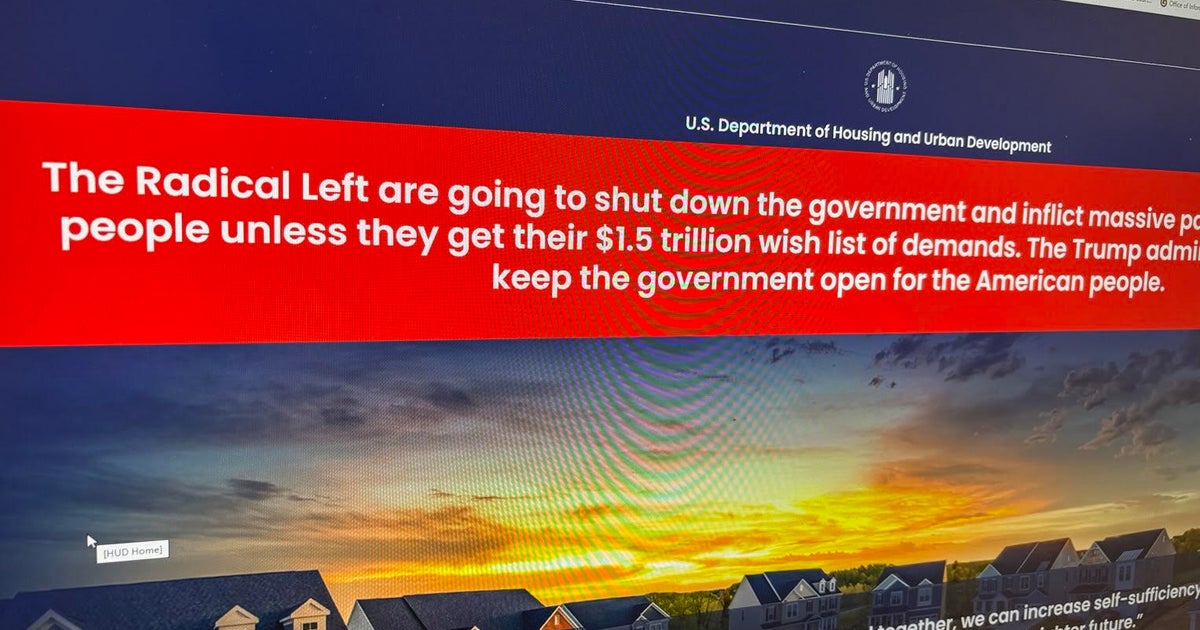
As the clock ticked down to Wednesday’s government shutdown, the U.S. Department of Housing and Urban Development (HUD) took an unprecedented step by posting a banner on its homepage that attributed the impending crisis to the so-called “Radical Left.” This provocative message has drawn sharp criticism from ethics watchdogs, who argue that it violates the Hatch Act, a federal law designed to maintain the nonpartisan nature of government operations.
The contentious banner declared, “The Radical Left are going to shut down the government and inflict massive pain on the American people unless they get their $1.5 trillion wish list of demands.” It further insisted that “The Trump administration wants to keep the government open for the American people.” This narrative, critics argue, is not only misleading but also undermines the ethical standards expected of federal agencies.
Public Citizen, a nonprofit consumer advocacy organization, swiftly filed a complaint with the U.S. Office of Special Counsel, characterizing the HUD’s banner as a “blatant violation” of the Hatch Act. This law, which was enacted in 1939, restricts the political activities of federal employees to ensure that government functions are executed in a nonpartisan manner. According to the Office of Special Counsel, the intent of the Hatch Act is to maintain public confidence in the integrity of federal programs.
Craig Holman, a government ethics expert with Public Citizen who spearheaded the complaint, expressed disbelief at HUD’s actions. “This is such an obvious violation of the Hatch Act that it raises the question: ‘How on Earth does HUD think they can get away with this?'” Holman stated. He contended that the Trump administration has systematically weakened the very agencies tasked with enforcing ethical standards in government, including the Office of Special Counsel and the Office of Government Ethics.
Holman added that the blatant partisanship exhibited by HUD, using taxpayer resources to campaign against Democrats while promoting the Trump administration, would be hard to overlook, even by a compromised ethics office. As the fallout from this incident unfolds, it raises serious questions about accountability within government agencies.
The Office of Special Counsel is an independent federal agency with the mission of enforcing the Hatch Act, investigating misconduct within the executive branch, and protecting whistleblowers from retribution. However, the agency has already faced significant changes under the Trump administration, including the dismissal of its former head, Hampton Dellinger, who was replaced by acting Special Counsel Jamieson Greer. Dellinger’s firing was contested but ultimately upheld by a federal appeals court.
The ongoing government shutdown, effective as of 12:01 a.m. Wednesday, was precipitated by the Senate’s failure to approve a short-term funding bill that had previously passed the House. The impasse highlights a growing divide between Democrats and Republicans over critical funding issues, including tax credits for the Affordable Care Act and Medicaid funding cuts linked to Trump’s recent legislative efforts.
Democratic leaders have called for the funding bill to include a permanent extension of tax credits for those receiving health insurance through the ACA marketplace, as well as a rollback of Medicaid reductions enacted as part of Trump’s “big, beautiful bill” earlier this summer. Conversely, some Republican lawmakers have sought to downplay the impact of these cuts, claiming that they are focused on eliminating fraud rather than reducing access to essential services. House Speaker Mike Johnson argued that the reforms were aimed at strengthening Medicaid by addressing “fraud, waste, and abuse.”
As lawmakers from both sides of the aisle traded blame for the shutdown, Democratic Senate Minority Leader Chuck Schumer urged Republicans to “cut the garbage and get serious,” while Senate Majority Leader John Thune insisted that the shutdown was “totally avoidable” and placed responsibility squarely on Senate Democrats.
With the government’s closure now a reality, the implications of HUD’s partisan messaging and the broader political standoff raise pressing concerns about the future of governance in the United States. As the nation grapples with these challenges, the call for accountability and ethical conduct in government has never been more urgent.


